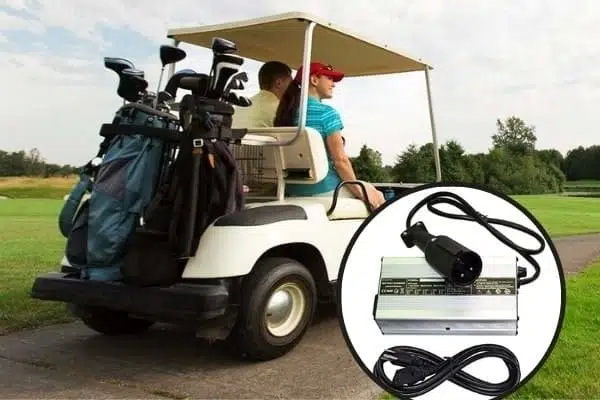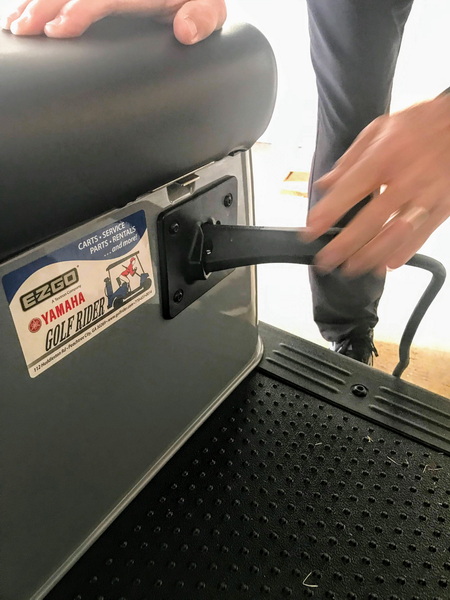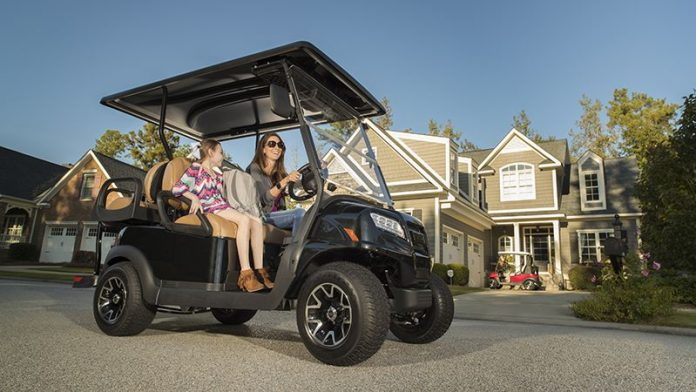Content Menu
● Factors Affecting Charging Time
>> Battery Type
>> Battery Capacity
>> Charger Output
>> Depth of Discharge
>> Battery Age and Condition
● Typical Charging Times
● Charging Process
● Tips for Efficient Charging
● Fast Charging Options
● Impact of Temperature on Charging
● Monitoring Charge Status
● Charging Station Infrastructure
● Future of Electric Golf Cart Charging
● Environmental Impact
● Conclusion
● FAQ
>> 1. Can I overcharge my golf cart battery?
>> 2. How often should I charge my electric golf cart?
>> 3. Can I use my golf cart while it's charging?
>> 4. How can I tell if my golf cart battery is fully charged?
>> 5. Does charging time affect the lifespan of my golf cart battery?
Electric golf carts have become increasingly popular in recent years, offering a quiet and eco-friendly alternative to traditional gas-powered carts. One of the most common questions asked by new electric golf cart owners is about charging time. In this comprehensive guide, we'll explore the factors that affect charging time, provide tips for efficient charging, and answer some frequently asked questions.

Factors Affecting Charging Time
Several factors influence how long it takes to charge an electric golf cart:
Battery Type
The type of battery used in your golf cart plays a significant role in determining charging time. There are two main types of batteries used in electric golf carts:
1. Lead-acid batteries
2. Lithium-ion batteries
Lead-acid batteries are the traditional choice and are generally less expensive. However, they typically take longer to charge, usually between 8 to 14 hours for a full charge.
Lithium-ion batteries, on the other hand, are more modern and efficient. They can charge much faster, often in as little as 3 to 4 hours.
Battery Capacity
The capacity of your golf cart's battery, measured in amp-hours (Ah), also affects charging time. A higher capacity battery will naturally take longer to charge fully. For example, a 100Ah battery will charge faster than a 200Ah battery, assuming all other factors are equal.
Charger Output
The power output of your charger, measured in watts, directly impacts charging time. A higher wattage charger will charge your golf cart faster than a lower wattage one. For instance, a 1425W charger will charge your cart approximately twice as fast as a 650W charger.
Depth of Discharge
How much you've used your golf cart since the last charge also affects charging time. A battery that's only 50% discharged will charge faster than one that's completely drained.
Battery Age and Condition
As batteries age, they may take longer to charge and hold less charge overall. Regular maintenance can help prolong battery life and maintain charging efficiency.

Typical Charging Times
While charging times can vary widely based on the factors mentioned above, here are some general guidelines:
- Lead-acid batteries: 8-14 hours for a full charge
- Lithium-ion batteries: 3-4 hours for a full charge
It's important to note that these are averages, and your actual charging time may differ.
Charging Process
To charge your electric golf cart efficiently and safely, follow these steps:
1. Park your golf cart in a well-ventilated area, away from flammable materials.
2. Turn off the golf cart and remove the key.
3. Locate the charging port on your golf cart (usually on the side or front).
4. Connect the charger to the golf cart's charging port.
5. Plug the charger into a suitable power outlet.
6. Monitor the charging process using the charger's indicators.
Here's a video demonstrating the charging process:
Tips for Efficient Charging
To optimize your golf cart's charging process and battery life, consider these tips:
1. Charge after each use: This helps prevent deep discharges, which can shorten battery life.
2. Avoid overcharging: Most modern chargers have automatic shut-off features, but it's still good practice to unplug once fully charged.
3. Use the correct charger: Always use a charger designed for your specific battery type and voltage.
4. Keep batteries clean: Clean battery terminals regularly to ensure good connections.
5. Maintain proper water levels: For lead-acid batteries, check and maintain proper water levels as per manufacturer instructions.
Fast Charging Options
For those who need quicker charging times, there are fast charging options available:
1. High-output chargers: These chargers can significantly reduce charging time but may be more expensive.
2. Lithium-ion battery upgrade: If your cart currently uses lead-acid batteries, upgrading to lithium-ion can drastically reduce charging time.
3. Opportunity charging: This involves charging your cart for short periods whenever possible, rather than waiting for a full discharge.
Impact of Temperature on Charging
Temperature can significantly affect charging time and efficiency:
- Cold temperatures can slow down the chemical reactions in batteries, increasing charging time.
- Hot temperatures can speed up charging but may also cause damage to the battery if not properly managed.
It's best to charge your golf cart in moderate temperatures whenever possible.

Monitoring Charge Status
Most modern golf carts come equipped with battery meters that indicate the current charge level. These can range from simple LED indicators to more advanced digital displays.
Charging Station Infrastructure
For golf courses or communities with multiple electric golf carts, investing in proper charging infrastructure is crucial. This may include:
- Dedicated charging stations
- Smart charging systems that optimize charging across multiple carts
- Solar-powered charging options for eco-friendly operation
Future of Electric Golf Cart Charging
As technology advances, we can expect to see improvements in electric golf cart charging:
- Wireless charging: Some manufacturers are exploring wireless charging options for added convenience.
- Solar-integrated carts: Golf carts with built-in solar panels could extend range and reduce charging time.
- Advanced battery technologies: New battery chemistries may offer faster charging and longer life in the future.
Environmental Impact
It's worth noting that electric golf carts, despite requiring charging, have a lower environmental impact compared to gas-powered carts. They produce zero emissions during operation and can be charged using renewable energy sources.
Conclusion
The time it takes to charge an electric golf cart can vary widely, typically ranging from 3 to 14 hours depending on various factors such as battery type, capacity, charger output, and depth of discharge. By understanding these factors and following best practices for charging and maintenance, you can ensure optimal performance and longevity for your electric golf cart.
As technology continues to advance, we can expect to see even more efficient charging solutions in the future, making electric golf carts an increasingly attractive option for both individual users and golf courses.

FAQ
1. Can I overcharge my golf cart battery?
Most modern golf cart chargers have automatic shut-off features that prevent overcharging. However, it's still a good practice to unplug the charger once the battery is fully charged to avoid any potential issues.
2. How often should I charge my electric golf cart?
It's best to charge your golf cart after each use, regardless of how much you've used it. This helps prevent deep discharges and prolongs battery life.
3. Can I use my golf cart while it's charging?
No, you should not use your golf cart while it's charging. This can be dangerous and may damage the battery or charger.
4. How can I tell if my golf cart battery is fully charged?
Most chargers have indicator lights that show when the battery is fully charged. Additionally, your golf cart should have a battery meter that displays the current charge level.
5. Does charging time affect the lifespan of my golf cart battery?
While charging time itself doesn't directly affect battery lifespan, frequent deep discharges and improper charging practices can shorten a battery's life. Using the correct charger and following proper charging procedures will help maximize your battery's lifespan.











































